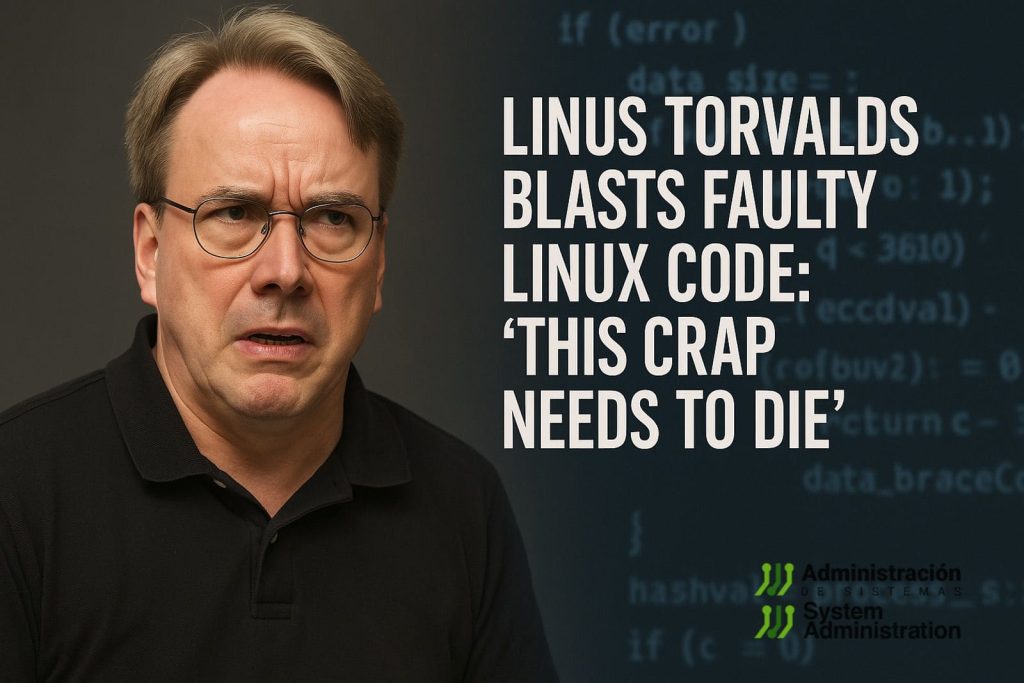Linus Torvalds, the creator and lead maintainer of the Linux kernel, has once again made headlines—this time for his fiery criticism of a problematic piece of code that slipped into the 6.15-rc1 release candidate. The issue? A test feature called “hdrtest”, which automatically generates unwanted files during the build process, cluttering the source tree and slowing down compilation.
In a message to the Linux kernel mailing list, Torvalds didn’t hold back, calling the implementation “broken”, “disgusting”, and stating flatly that “this has to die.” While the tool is meant to verify header consistency in the DRM (Direct Rendering Manager) subsystem—particularly for Intel’s Xe GPU driver—Torvalds was furious about its unpolished integration.
Unwanted files and broken workflows
The problem stems from the way “hdrtest” creates temporary files—referred to by Torvalds as “turds”—in the main source directories during builds. These files not only pollute the repository but also break developer workflows, especially for those who rely heavily on features like tab-completion.
“What made me realize it was still there was that
git statuscomplained about the stupid turds not being ignored,” Torvalds explained. “But more importantly, those turds break filename autocomplete!”
He emphasized that simply adding the files to .gitignore wasn’t an acceptable solution. The fact that they showed up at all during routine development was the real problem.
A pull request gone wrong
Torvalds clarified that he didn’t add the code himself. It arrived as part of a pull request from developers working on the graphics subsystem. The feature was intended to validate headers, but it was enabled by default, meaning all developers compiling the kernel would run into the same unwanted side effects.
“We don’t add random turds as dependencies that clutter the source tree,” he stated bluntly.
What’s worse, the test runs automatically during the build process, slowing down compiles without any way to opt out. Torvalds insisted that this behavior is unacceptable and must be corrected immediately.
How it should be done
While he acknowledged the potential usefulness of the test for verifying UAPI (user-space API) headers, Torvalds stressed that such functionality must be optional and properly isolated.
He suggested that if the feature is kept, it should only run when explicitly called—for example, with a command like make drm-hdrtest. Furthermore, the generated files should either be hidden (prefixed with a dot) or moved to a completely separate subdirectory to avoid cluttering the main development environment.
“If this feature is useful, then damn it, the file naming needs to die. Take it behind the shed and shoot it in the head, because it messes with TAB-completion,” he wrote.
Temporary disablement and future fixes
In response to the backlash, the hdrtest feature has been temporarily disabled, and its future depends on whether the maintainers can reimplement it in a cleaner, more developer-friendly way. Torvalds made it clear that while he’s not opposed to the feature itself, he won’t tolerate poor execution that disrupts the daily workflows of kernel contributors.
A reminder of Linux’s uncompromising standards
This incident underscores the meticulous standards that govern the Linux kernel development process. Even seemingly minor features must meet strict expectations regarding performance, cleanliness, and developer usability. Torvalds’ intervention serves as a strong reminder: in Linux, half-baked features have no place—especially when they interfere with productivity.
For now, “hdrtest” is out, and its future will depend on whether it can return in a form that meets the rigorous standards of one of the world’s most influential software projects.
Source: Kernel mail-list

